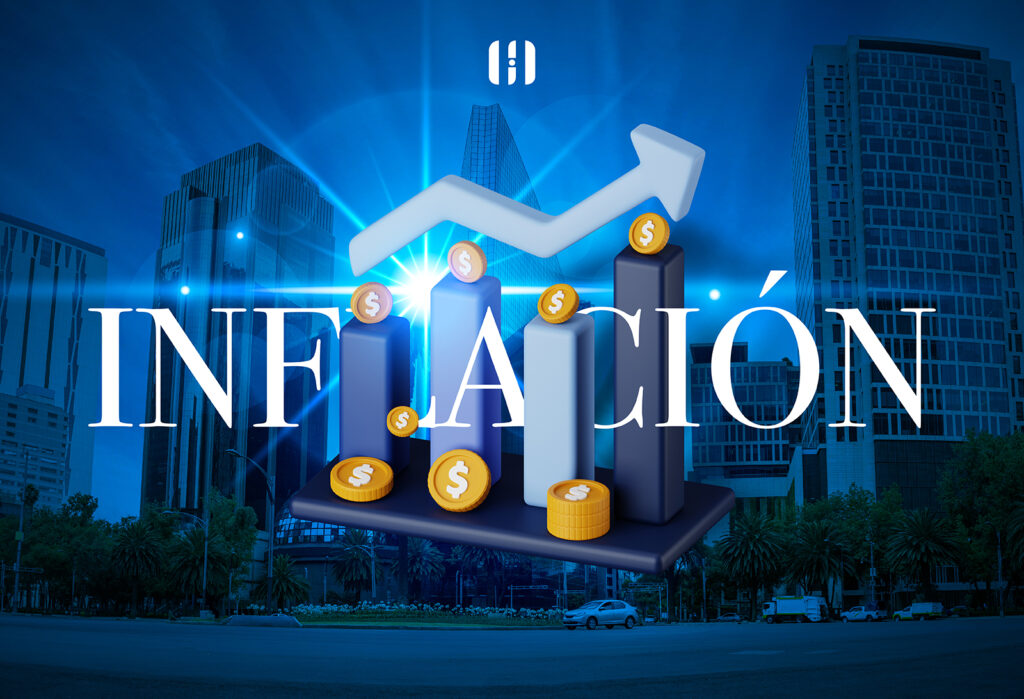Inflation is a universal economic phenomenon characterized by a sustained increase in the prices of goods and services within an economy. This phenomenon not only affects the purchasing power of consumers but also has a profound impact on a country’s economic health. In Mexico, inflation plays a crucial role in shaping economic policies and in the everyday lives of its citizens.
To understand how inflation works, it’s essential to recognize that it is generally measured through the Consumer Price Index (CPI). This index reflects the average cost of a basket of goods and services, including food, transport, and housing. When the CPI increases, it indicates that the purchasing power of the currency has decreased, as more money is needed to buy the same amount of goods and services as before.
Causes of Inflation in Mexico
In Mexico, inflation can be driven by various factors, among the most significant are:
Aggregate Demand: An increase in the demand for goods and services can lead to a rise in prices, especially if the supply cannot adjust quickly.
Production Costs: If the cost of materials or labor increases, producers might raise prices to maintain their profit margins.
Monetary and Fiscal Policies: The expansion of the monetary base or an increase in public spending can result in higher inflation.
External Factors: Fluctuations in the exchange rate, as well as changes in international prices of raw materials, can influence internal prices.
Impact of Inflation on the Mexican Economy
Inflation has multiple effects on the Mexican economy:
Purchasing Power: An increase in inflation reduces consumers’ purchasing power, meaning they can buy less with the same amount of money. This particularly affects families with low and fixed incomes.
Economic Uncertainty: High inflation can lead to market uncertainty, affecting investments and economic growth.
Public Debt: Inflation can erode the real value of public debt, which is advantageous for the government if it is the debtor, but detrimental for investors.
International Competitiveness: High inflation can affect the competitiveness of Mexican exports, making domestic products more expensive in international markets.
Measures to Control Inflation in Mexico
The Bank of Mexico, as the country’s monetary authority, has one of its main objectives to control inflation. To do this, it uses tools such as the interbank interest rate, which it can adjust to influence inflation. An increase in the interest rate tends to reduce inflation, while a decrease tends to increase it.
Additionally, the government can implement restrictive fiscal policies to control public spending and reduce inflationary pressure. It is also crucial to implement policies that encourage productivity and competition to increase the supply of goods and services, which can help keep prices stable.
In conclusion, inflation is a complex phenomenon that significantly impacts a country’s economy. In Mexico, careful management of inflation is essential to ensure economic stability and the well-being of its citizens. Through effective monetary and fiscal policies, along with measures that promote economic efficiency, a balance can be achieved that favors growth and economic stability.




